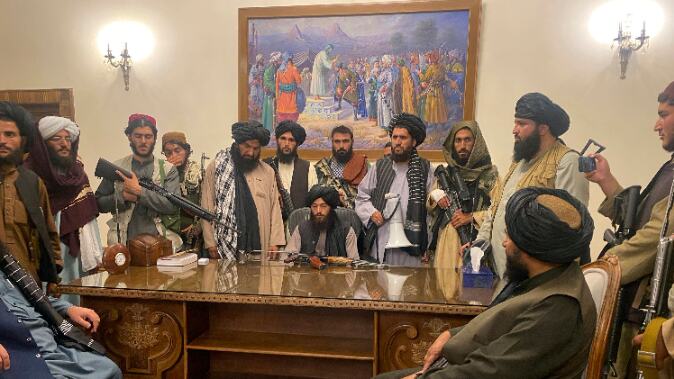A 'legitimate' usurpation

Is this a fitting outcome of a war that lasted over two decades? Taliban is at the brink of the process of usurping unhindered control over Kabul as the legitimate administrator of the country. The war on terror has ceded ground to the Taliban. Afghan president has fled the country "to avoid bloodshed" in the nation; the United States, along with many other powerful nations, is evacuating its citizens from the embassy; India is still clueless and has been silent until now over the Kabul takeover — all this under the influence of a terror-based outfit allegedly backed by certain nations. This horrible scenario is grim reminder of how threatening terrorism could be. The one word for the current scenario in Afghanistan should be — downfall. Downfall of a democratic set-up in Afghanistan and downfall of all the involved warlords, including the world's most powerful nation that has abandoned Afghanistan by turning a blind eye towards the consequences. But the greatest downfall would be that of women, artists, and children. It takes not years, but decades, to uplift marginalized, downtrodden, secluded sections of society to get themselves counted in mainframe, to attain freedom and lead towards a dignified or, at least, a satisfactory life. The ravages caused by Taliban rule in the 1990s on the women and children were so grave that they are pleading for support to escape them from being forced back into the gloom. It is misleading on the part of those who find solace in the fact that Taliban's transition to power is comparatively peaceful this time. It is pitying to find traces of tolerance in unresisted trampling of power. It is, at best, an effort to find an escape. Can the Taliban be expected to run a more rational government than it did two decades earlier. Chances are very bleak. It would again be misleading to go by its promises of peaceful transition and governance. Promises mean the least in administration matters, especially if it comes from an authoritative power. Afghan people have earned an administrative set up over the past two decades. To rest their prospects on the alms of Taliban would be a grave insult to the people of Afghanistan. The peaceful transition is a façade. In reality there is discontent and fright. Until now five people have been reported to be killed at Afghanistan airport. The cause could be a stampede or the firing of gunshots in air by the US troops to prevent people from rushing towards the military Tarmac. It is argued that Taliban takeover of Afghanistan was inevitable and that only the swiftness with which it has come is shocking. If the consequence had been so clear, where were the efforts of building up a long-term resistance plan on the part of the Afghan government. As a country which is always ready to step its foot in the affairs of countries around the world on the ground of upholding democracy, does the US hold legitimacy to make such claims further, given that it has shown complete disdain towards civil rights and liberties in Afghanistan. Though the biggest concern at the moment is life and liberty of the people, repercussions on regional geopolitics are no less serious. Afghanistan could emerge as a new point of tension among the countries that are its immediate or disjoint neighbors — India, Pakistan, Iran and China. Afghanistan could be a country where these nations will strive towards competing with each other. Such a conflicting zone could potentially push the South Asian region backwards against the Western regions. In certain quarters, Pakistan is being seen as a strategic gainer as it is believed to have backed Taliban rule in Afghanistan. But as for now, there are no clear winners in these developments. Taliban's complete rule may even backfire against Pakistan's interests. India certainly is finding itself in an uncomfortable position. Individual woes and aspirations of each of the nations may be different at this point in time — giving rise to differing insecurities and ambitions. History is replete with examples where such insecurities and ambitions have given birth to blunders. The nations in the region are expected to avoid such blunders in wake of misunderstanding against each other. Taliban rule in Afghanistan — good or bad — has emerged as a new reality, it cannot be escaped now. The key thing is that it can be made better or worse depending upon how the neighboring countries interact with Afghanistan and among themselves. Whether the Taliban have changed or not over the past decades is not known. But Afghanistan has changed, and the world has changed. It is time to figure out the best bargain for vulnerable sections in Afghanistan. They have already tasted some freedom and they need buttressing so that they can stand up for their rights and liberties under the new regime.



